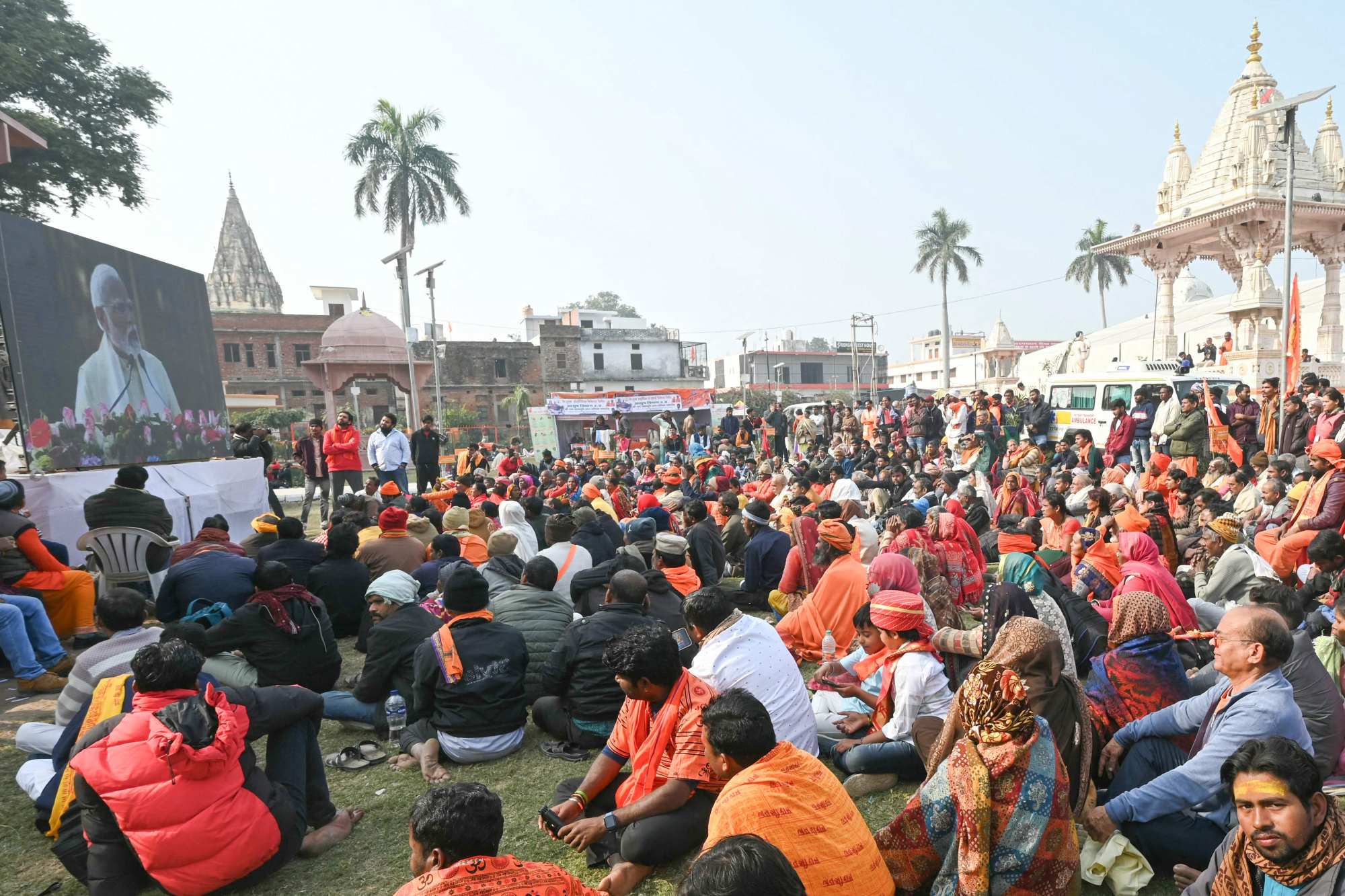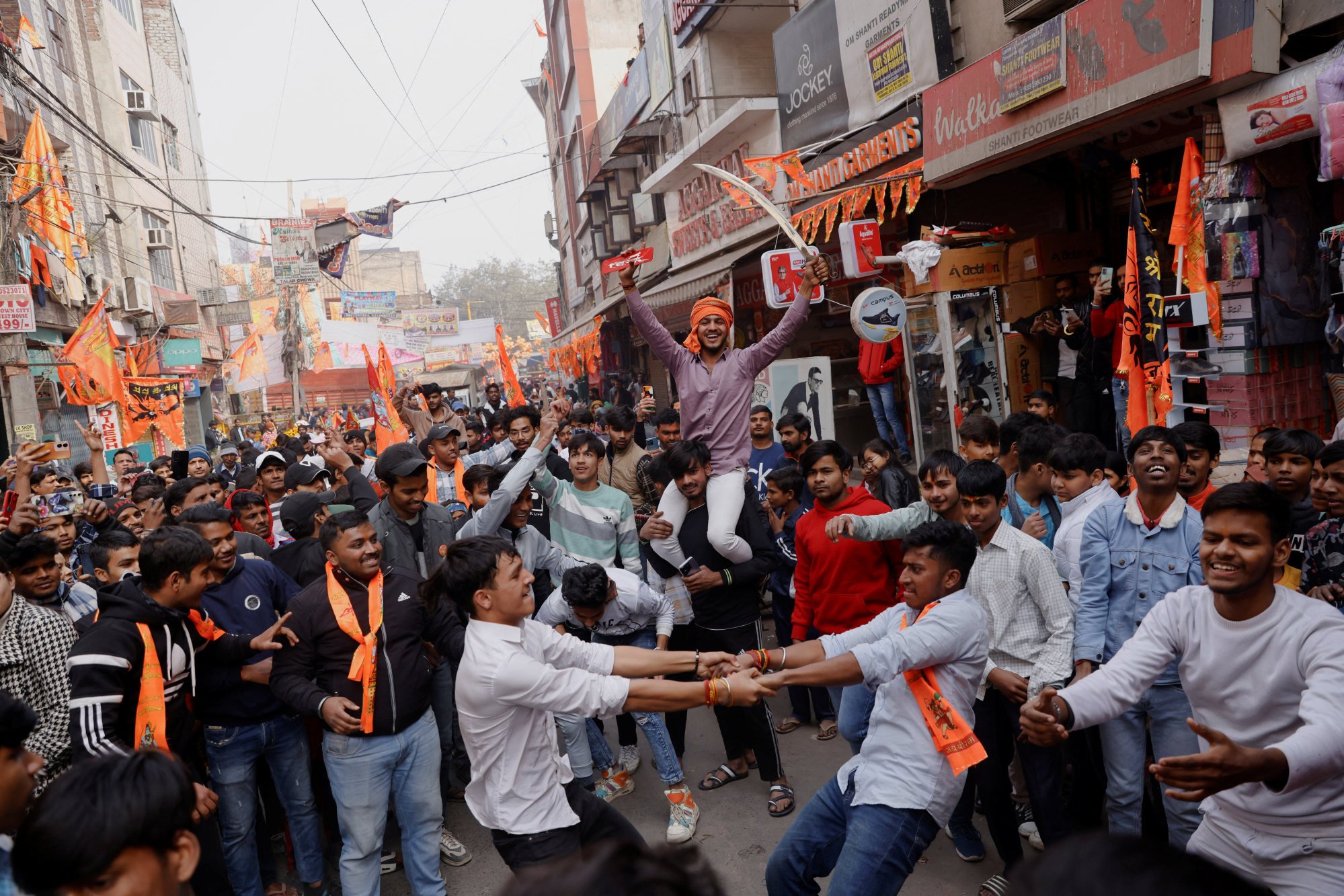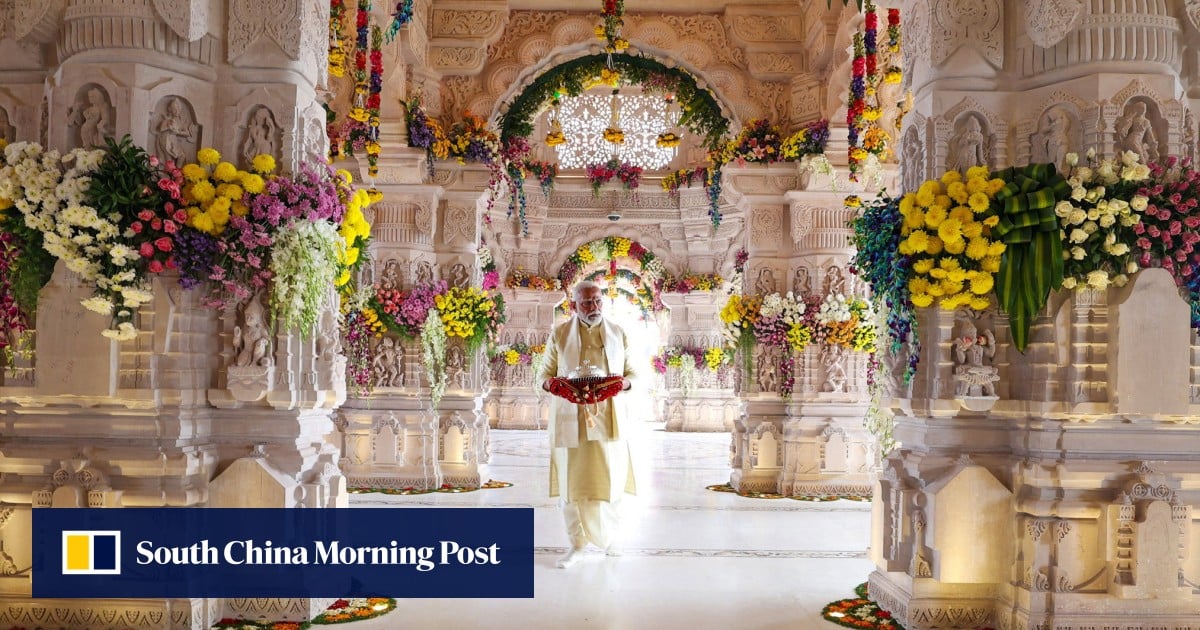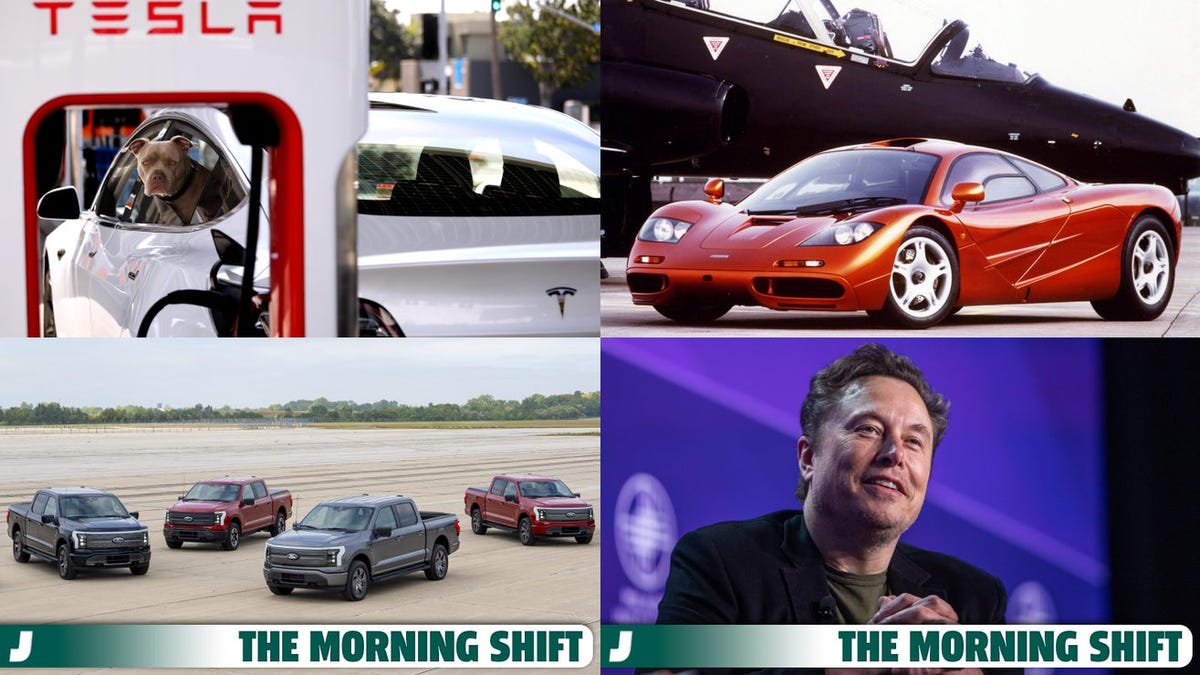Indian Prime Minister Narendra Modi on Monday inaugurated a temple to the Hindu god Ram at the site of a razed mosque in the northern town of Ayodhya, an event analysts say signifies the start of election campaigning for his party while fulfilling a longstanding promise to its Hindu support base.
Modi, dressed in a traditional kurta tunic, led the opening ceremony as Hindu priests chanted hymns inside the temple’s inner sanctum, where a 1.3-metre-tall stone sculpture of Lord Ram was installed last week.
A priest blew a conch to mark the temple’s opening, and Modi placed a lotus flower in front of the black stone idol that was decked in intricate gold ornaments and holding a golden bow and arrow. He later prostrated before the idol.
“Our Lord Ram has arrived after centuries of wait,” Modi said. “January 22, 2024 is not merely a date in the calendar but heralds the advent of a new era,” he added, speaking outside the temple.
Modi said the temple was built after “countless sacrifices” and that it was a testament to a rising India “breaking the shackles of slave mentality”.
Among those who attended the ceremony was Harish Joshi, who arrived in Ayodhya from Uttarakhand state four days earlier.
“I am here to see history unfolding before our eyes. For centuries, the story of Lord Ram has resonated in the hearts of millions,” Joshi said.
The campaign to build a temple to Lord Ram, the deity also known as Rama who devotees believe was born in Ayodhya, has been at the centre of a three-decade-long campaign by the ruling Bharatiya Janata Party (BJP). In 1992, Hindu mobs razed a mosque at a site in the city where they say a temple had earlier existed.
Ram is worshipped as the ideal person by millions of people, including in Southeast Asia. His life story is found in the Ramayana, a popular epic in South and Southeast Asia, where the exiled crown heir of Ayodhya returned to his kingdom after saving his kidnapped wife, Sita. Along the way, it teaches Hindu life lessons.

Although it is still under construction, the newly inaugurated temple is expected to draw up to 100 million tourists a year, mostly from the country’s majority Hindu population that propelled the BJP to power for two consecutive mandates since 2014.
The temple inauguration is likely to consolidate the BJP’s political share as it seeks a historic third mandate, though the gains from the temple campaign alone could be limited, despite the ruling party declaring it a partial holiday for offices and schools as the event was broadcast live across parts of the country.
“We are likely to see the BJP campaign taking on a new momentum with this pran pratishtha [temple consecration] ceremony. But whether it will lead to a swelling of its votes, I am not so sure. I believe that vote has already peaked for the party,” said Sandeeop Shastri, director of academics at the Nitte Education Trust and national coordinator of the Lok Niti network, which studies elections.
“Those who would have voted for the party on this issue have always been voting for the party on the issue,” he added.
India’s Hindu nationalist fervour echoed in ancient city Ayodhya’s revamp
India’s Hindu nationalist fervour echoed in ancient city Ayodhya’s revamp
In 2019’s parliamentary elections, the BJP won 303 of 545 seats in the lower house – a clear majority – after securing 37 per cent of the vote with the help of its staunch Hindu support.
“The best that could happen for the BJP from this temple campaign is that the religious fervour could make up for anti-incumbency, which it might be facing in certain states [because of its long period of rule],” Shastri said.
Apart from a US$6 billion makeover of the northern city of Ayodhya, where Modi opened the first phase of a Ram Temple, the federal government has spent nearly US$120 million to develop dozens of Hindu pilgrimage sites in the past decade, according to government data, and more funding is planned.
But work on other sites is likely to be taken up earnestly only after the elections, as the party is likely to focus on fulfilling its Ram Temple pledge, analysts say.

Mixed blessings
The BJP is likely to launch a series of initiatives and social media campaigns based around the Ram Temple inauguration leading up to the Ram Navami festival in April, which marks the deity’s birth, according to Nilanjan Mukhopadhyay, an independent political commentator and author.
“There will be constant narratives and speeches and social media posts that the government has done a wonderful job of completing it in record time, though the temple will be ready [only] in 2025,” he said.
The government invited certain political opposition leaders to the temple ceremony, evoking a mixed response, including from those who declined to accept.
Over the last decade, competing narratives have punctuated Modi’s tenure. While he boosted India’s profile globally by rapidly expanding the country’s infrastructure and shoring up its manufacturing sector, the threat of sectarian violence has loomed over the nation because of the ideology of Hindutva, or Hindu nationalism.
Under Modi, press freedom has declined, political opponents have been marginalised and minorities such as Muslims say they face greater discrimination.
Additional reporting by Associated Press, Reuters and Bloomberg







